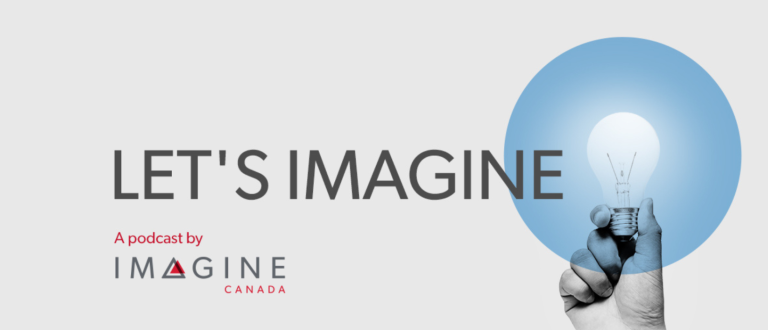On January 25th, we launched our virtual panel series on digital innovation called “Building Tomorrow: Catalyzing Conversations for Impact,” which explores recent technology advancements and innovations in the nonprofit sector. Throughout 2024, we’ll be hosting quarterly discussions where we bring experts in various fields to discuss emerging trends in artificial intelligence (AI) impacting the nonprofit sector.1
During the first episode, panelists took a deep dive into the world of AI and how it is shaping the nonprofit sector. We were joined by panelists Sharlene Gandhi; Future of Good, Angus Lockhart; The Dais and Jason Shim; Volunteer Canada.
What is Artificial Intelligence?
AI is the ability of a digital computer or computer-controlled robot to perform tasks commonly associated with intelligent beings.
AI has become a focal point of public and professional discourse, especially after the highly successful launch of ChatGPT-4 in March 2023. While the spotlight is currently on groundbreaking advancements in AI, the concept of AI has a long history, dating back to the coining of the term in 1955 to describe the creation of intelligent machines.
Before the era of ChatGPT, AI tools predominantly fell under the category of discriminative AI, which excelled in specialized tasks like image recognition and language translation. The emergence of ChatGPT marked a shift towards generative AI, a newer type of artificial intelligence that uses learned patterns to create new outputs based on user input.
Empowering Impact: Harnessing the Power of AI in the Nonprofit Sector
Top three takeaways from the discussion:
- According to a study by The Dais, the nonprofit sector is not actually behind in the adoption of AI technologies. Only 4% of Canadian businesses are using AI, while 2% of nonprofits are using AI. In fact, the vast majority of businesses are just beginning to use AI technologies, and the majority are not using the most innovative cutting-edge technologies. The most common uses of AI technologies among businesses are marketing and sales, business administration and ICT security.
- When developing a basic governance structure for the use of AI in your organization, consider including one that addresses what professional applications are appropriate and if the use of AI is aligned with their mission. For example, if using AI to draft granting applications, what is an acceptable process for ensuring a human reviews it before it is submitted?
- To ensure databases are securely maintained, organizations must implement appropriate cybersecurity measure.
Over the next year, we will continue to host panel discussions which take a deeper dive into the world of AI and how it affects the nonprofit sector. Nonprofit organizations in the sector can expect to find us covering topics such as cybersecurity, AI & ethics, skills development & the labour force, data management and privacy.
Our next panel discussion will take place in the spring. Sign up for the Early Alert to find out the date when details are available.
Have a question about AI? Send us an email at [email protected]. It may be the focus of our next discussion!
As a reminder, Imagine Canada members can attend these events free of charge. Interested in becoming an Imagine Canada Member? Contact [email protected] for more information.
1 https://www.britannica.com/technology/artificial-intelligence



